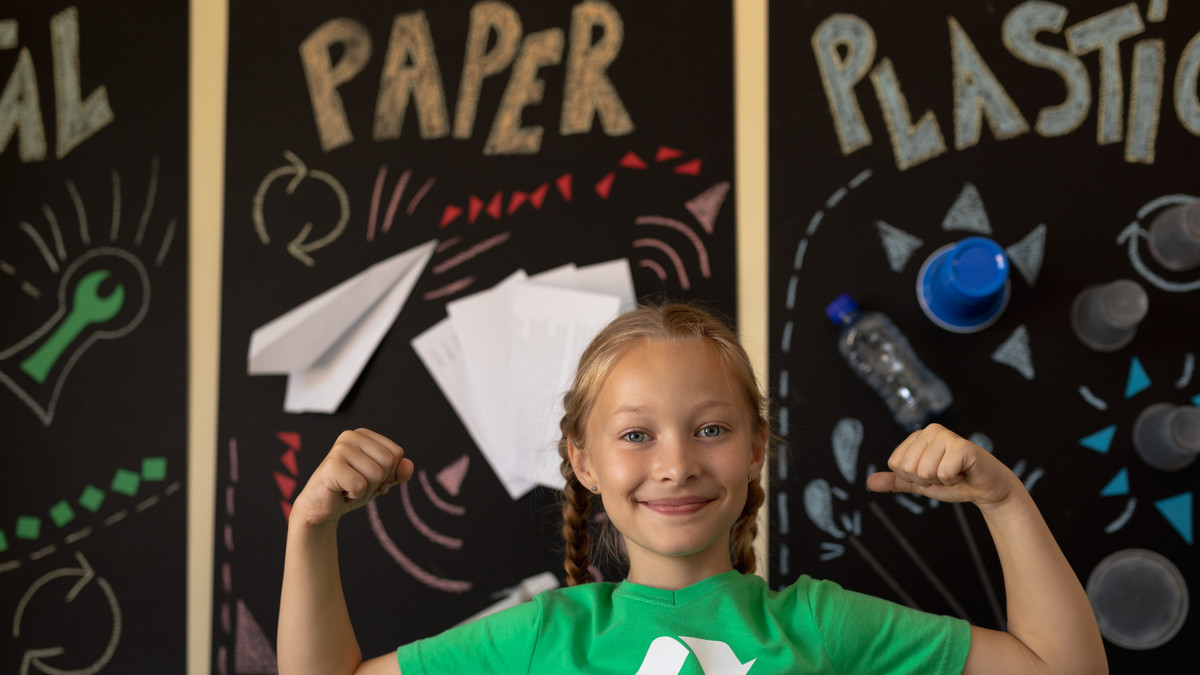Has your school made its New Year’s resolution yet? How about considering one on climate change?
2023 has opened with an onslaught of severe storms in California that have caused devastating flooding, forcing evacuations and hundreds of schools to close all along the coast. Last year, historic heat waves in the U.S. forced schools to dismiss students early or shut down entirely.
Rising temperatures and more severe storms like the ones in California are the consequence of climate change, say scientists. Here at Education Week, we’ve been examining what role schools play in both contributing to greenhouse gas emissions and educating kids about global warming in a special series of stories.
The U.S. Department of Energy calculates that schools emit an estimated 72 million metric tons of carbon dioxide a year. That’s more than 8 million homes, according to a separate analysis by the advocacy group Generation180.
Students are also eager to learn more about climate change. Sixty-five percent of teens surveyed by the EdWeek Research Center said they want to learn more from their teachers about how climate change will affect the future of the Earth and society. Half of teens say they want to learn about the science behind climate change and what they can personally do to lessen the effects of it. And nearly 1 in 3 teens say they want to learn in school about job opportunities related to sustainability and climate change.
You don’t have to formulate plans on your own. We reached out to a group of seven experts in the field, including educators, administrators, advocates, and students, and asked them: What should be a new year’s resolution that schools should make to address climate change?
Go ahead and swipe these, or let them inspire you.
On creating a climate action plan
“My climate change resolution is that each of the 80 school districts in Los Angeles County have a climate action plan in place by the end of 2023. Plans should ideally include different ways districts and schools can reduce their carbon footprint, build climate resilience, and provide classroom instruction that helps prepare students for a clean economy. The Los Angeles County Office of Education will support district leaders to accelerate their climate action plan and provide tools and resources to help educators and students build a more sustainable world. We hope to empower school leaders to proactively work with their staff, community members, and state and federal partners to make a meaningful impact in the fight against the global climate crisis.”
—Debra Duardo, the Los Angeles County superintendent of schools
“I hope school district leaders will commit to talking about climate change and commit to working with students, parents, educators, and school leaders to develop local climate action plans. These plans can direct district action to reduce its carbon footprint, adapt and build resilience to climate impacts, and support teaching and learning on climate change and solutions. School district leaders can look to these key questions to help them start taking action.”
—Laura Schifter, senior fellow, This Is Planet Ed, an initiative of the Aspen Institute
“In 2023, all schools should make a resolution to make a (climate) resolution. Leading districts across the country have formalized their commitment to address climate change through school board resolutions. These resolutions serve as a way to institutionalize an intention to embark on the multi-year journey to transform infrastructure and advance student experiences in ways that recognize the existential threat of climate change as well as the opportunity offered by an emerging clean economy.
Planful districts will decrease their operating costs and be positioned to draw on billions in new federal incentives to support decarbonization and resilience. Districts can look to examples from Salt Lake City, Portland, Ore., and Prince George’s County, Md.
—Jonathan Klein, the co-founder of UndauntedK-12, a national nonprofit supporting climate action in public schools
On leveraging federal funding to make school buildings more sustainable
“My hope is that K-12 schools and institutions of higher education will utilize the Inflation Reduction Act and the Bipartisan Infrastructure Bill to transition to clean renewable energy and build resilience to climate impacts. In addition to being better for the environment, leveraging the funding that’s available is a win for public health by creating healthier and more sustainable learning environments all while saving on operating costs. Importantly, advancing climate solutions in schools can provide hands-on learning for students by preparing them for success in the clean economy.”
—John B. King, Jr., Chancellor of the State University of New York (SUNY); 10th U.S. Secretary of Education (Obama Administration); co-chair, This Is Planet Ed, an initiative of the Aspen Institute
On teaching about climate change
“Teachers can implement lessons about climate change and relate them to any subject they teach! After these lessons, make sure to allow space for students to process this new information and discuss what they’ve learned.”
—Louise Estella-Reid, 16, student leader, Schools for Climate Action in Santa Rosa, Calif.
“Encourage and then, support, educators in all subjects to integrate climate change into at least one lesson. Climate change is an interdisciplinary topic that can enrich every subject by making disciplinary concepts more relevant and tangible to students. After all, our students are asking to be taught about climate change since they are the generation that will be the most affected by its repercussions. Schools can make it their New Year’s Resolution to encourage all teachers to start small with an achievable goal—try teaching climate change in at least one of your lessons. However, teachers are already overwhelmed with everything they need to do. Suggesting resources, lesson plans, and professional development can go a long way in supporting educators as they embark on this journey to be a climate educator (check out www.subjecttoclimate.org for resources to share with educators!)”
—Margaret Wang, the co-founder and chief operating officer of SubjectToClimate, a nonprofit that provides materials on climate change for all K-12 teachers
On addressing students’ mental health
“In the new year, bring in self and community care while exploring climate change in schools. Many young people are reporting distress and unease when climate change is discussed, and it is important to focus on mental and physical health while engaging these topics.
“Finding time to express gratitude for the natural world, spending time in green spaces, and talking about one’s own climate emotions can be great ways to prioritize wellness in the new year. Emotions related to climate change can be vast and are experienced differently by diverse communities. It is important to validate the range of emotions that can be experienced and help inspire hopefulness for the future.”
—Lian Zeitz, the co-founder and director of programs for the Climate Mental Health Network
This article is written by Arianna Prothero & Madeline Will from Education Week, Bethesda, Md. and was legally licensed via the Tribune Content Agency through the Industry Dive Content Marketplace. Please direct all licensing questions to legal@industrydive.com.
![]()



